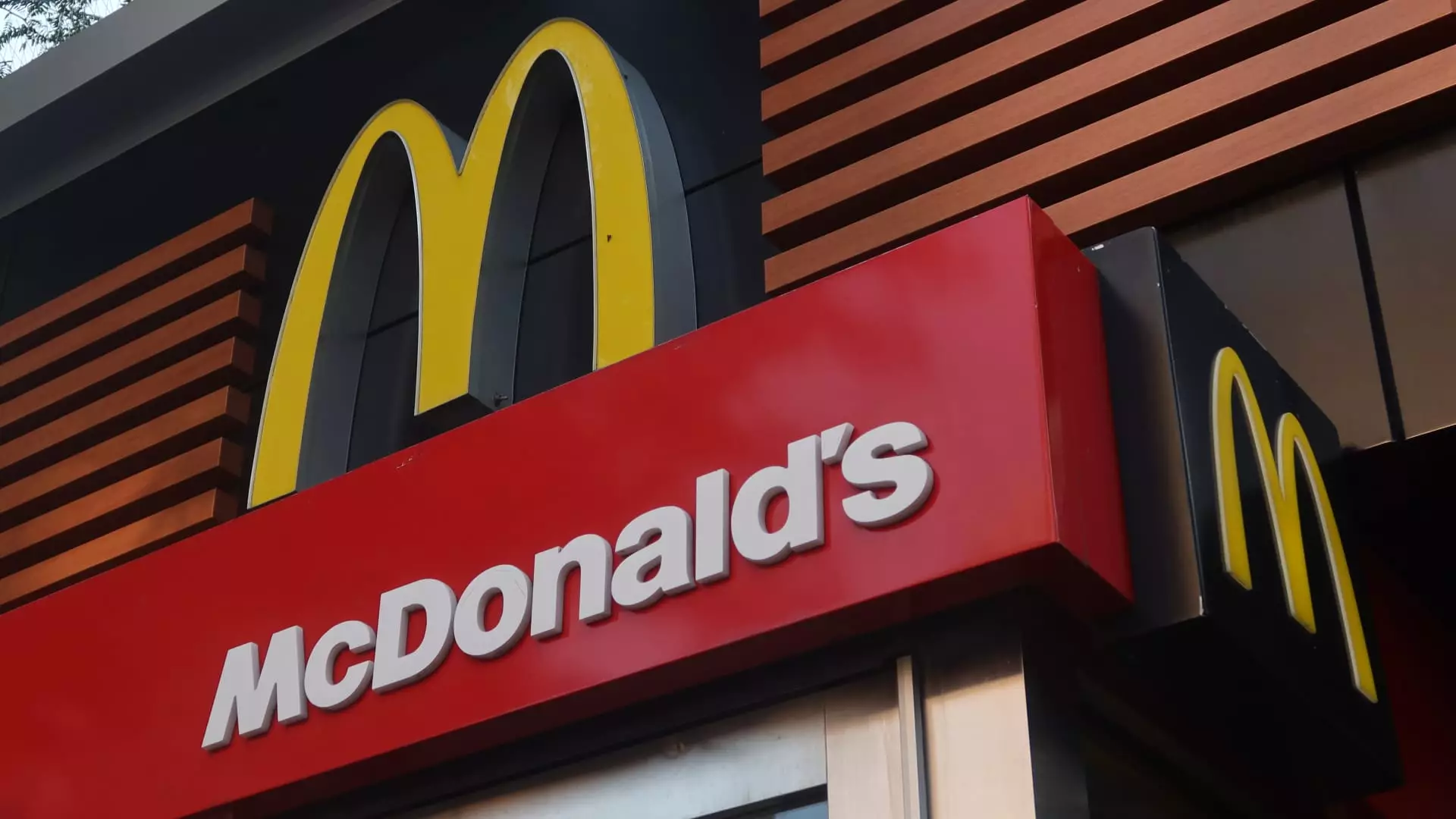McDonald’s recent financial performance paints a picture of superficial success—a company seemingly bouncing back, yet beneath the surface lies a troubling reality. The company’s latest earnings report, surpassing analyst expectations with modest growth, can be misleading. While the headlines tout record-breaking revenues and increased profits, the underlying economic tremors affecting its core consumer base should not be ignored. The truth is, McDonald’s is merely skating on the surface of a deeper, more complex issue: the precarious financial state of low-income Americans.
The company’s reported improvements are heavily dependent on short-term marketing campaigns and promotions that, while temporarily boosting sales, fail to address the root causes of consumers’ declining purchasing power. The thin veneer of stability masks a persistent decline in frequent visits from the very demographic that traditionally sustains fast-food chains—low-income households. This emotional and economic disconnect threatens the chain’s long-term viability, and unless McDonald’s shifts focus from superficial fixes to meaningful engagement, they risk slipping into a deeper crisis.
Economic Woes and the Myth of Low-Income Consumer Loyalty
Despite upbeat talk from executives, the reality is sobering: low-income consumers, the backbone of fast-food patronage, are increasingly squeezed by inflation and economic instability. McDonald’s CEO Chris Kempczinski’s remarks highlight a stark vulnerability—this consumer group visits more frequently than wealthier counterparts, yet they are also the most sensitive to price fluctuations. Their declining traffic signals an erosion of loyalty that no amount of promotional deals can revive if economic hardship persists.
McDonald’s attempts at promoting affordability through temporary deals and menu diversification only serve as Band-Aids on a gaping wound. The upcoming challenge lies in creating genuine value that resonates with consumers facing a cost-of-living crisis. The company’s focus on “value” often seems more like window dressing than an authentic effort to address systemic economic issues. Without addressing the broader economic forces—wage stagnation, inflation, and widening inequality—McDonald’s will struggle to retain its most frequent patrons.
Misplaced Optimism and the Illusion of International Success
While the company reports healthy international sales and market growth, this narrative is not entirely reassuring. The optimistic tone about international markets’ performance—highlighting gains in places like Japan, China, the UK, and Australia—should be viewed cautiously. These markets operate under different economic conditions, often less impacted by the inflationary pressures plaguing the U.S., or at least more capable of absorbing price increases.
The international growth figures, while encouraging on paper, do not necessarily translate into sustainable loyalty. Many markets are driven by different dynamics, and what appears as growth could be simply a displacement or temporary surge driven by other factors. Moreover, the global economic outlook remains uncertain, and dependence on international markets may conceal vulnerabilities that could surface with global upheavals or economic downturns.
The Myth of a Bright Future and the Real Cost of Superficial Success
McDonald’s optimistic projections for a stronger second half are optimistic at best. The company’s reliance on easier comparison quarters—thanks to prior outbreaks and temporary setbacks—might give a false sense of security. This “recovery” does not inherently equate to a robust, sustainable business model; rather, it reflects the limitations of incremental improvements and marketing tricks in the face of broader economic challenges.
It’s increasingly apparent that McDonald’s attractiveness is waning for low-income and even middle-income consumers. The company’s strategies seem rooted in maintaining short-term stability rather than instigating meaningful change. As inflation continues to outpace wage growth, the chains’ affordability measures risk becoming increasingly irrelevant—a symptom of a larger societal failure, where corporations like McDonald’s benefit from low wages and economic inequality, rather than challenging them.
In summary, McDonald’s current success feels more like a temporary reprieve than a sign of genuine resilience. While executives paint a picture of growth and recovery, the real story is one of decline in the very consumer segments that once guaranteed their dominance. This illusion of stability underscores the urgent need for systemic economic reforms, ensuring that working-class Americans are not left behind—something neither quick promotions nor international sales can truly rectify. Until that happens, McDonald’s’s “recovery” risks being just another fleeting illusion, masking the profound economic shifts shaping our society.

